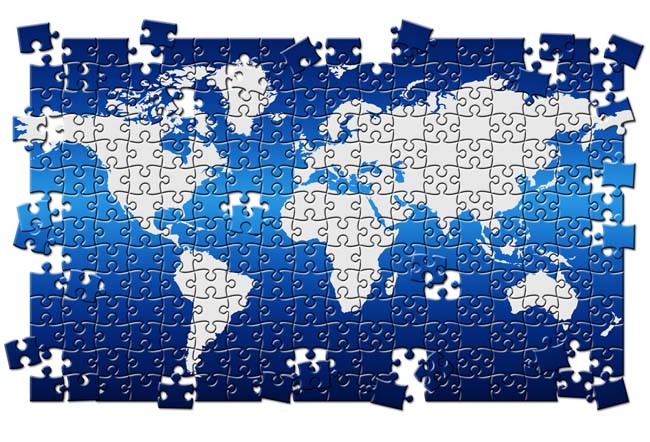 Often, due to their role and the nature of their work, Information Development teams face several challenges in an organization, such as:
Often, due to their role and the nature of their work, Information Development teams face several challenges in an organization, such as:
- Perceived value (or lack thereof) in the company
- Reduced clout on project teams
- Multiple projects and keeping up with daunting workloads
These challenges make it even more important that we have a solid handle on what we are doing within our Information Development (ID) team and present a united front to the organization. And getting to that “gelled” team state is more difficult if you have a geographically distributed team.
Distributed teams can be created in several ways. First, you could inherit team members through mergers and acquisitions. When you inherit team members from other organizations or through these transactions, take some time to understand the team’s history and processes. You can also build a team from scratch. This situation happens most often in startups and growing companies. Setting the tone for the team and establishing consistent standards is especially important with this kind of team. Finally, you can grow a team through hiring. Remember when hiring to look for candidates that are flexible and self-motivated. These are important qualities for distributed team members.
This article looks at how to address some of the logistical challenges in managing a global team. A future article will discuss the challenges related to people on a global team and some ideas for how to improve those.
Challenges in Managing a Global Team
Increasingly, businesses function with teams distributed around the world. So it benefits us all to figure out ways to address some common challenges associated with this global model.
Us vs. Them
The “us vs. them” mentality frequently emerges on a distributed team. We see this most often at the beginning when two teams join as part of a merger or acquisition. When you have large teams in two locations, the daily activities make it easy to forget that the team in the other location is part of your global group. Consider the following to address this mentality:
- Have a buddy system where a person from each group matches up with each other and they have regular calls to discuss fun stuff, work challenges, ideas for projects, etc.
- Schedule quarterly global team meetings. Regular global team meetings ensure the whole team is involved and comes together frequently to discuss all aspects of the team’s work, and what direction the team is headed.
Time Zone Differences
Time zone differences are an obstacle you can’t get around. The most important thing to remember in this area is to try to be fair to team members in remote locations.
- Switch off meeting times. Sometimes one group meets outside their normal work hours, and the next time the other group does.
- Be responsive to remote team members who work outside of your normal local work hours. This includes building time into the schedule to distribute meeting materials so they can be reviewed, or responding to emails outside those normal working hours.
Consistency in Standards
Keeping standards consistent around the world challenges even seasoned global groups. Previous practices and interactions with their project teams can impact how well they keep ID team standards. Good, productive interactions set the stage for good productive collaborations going forward. And creating best practices that everyone acknowledges becomes critical. Since ID teams typically have writers on multiple projects, consistent standards across the organization are important to reduce process learning time as people move from project to project.
Working with Project Teams
One of the best ways to get people to know each other and work together is to assign people from different locations work on projects together. This is not always feasible or desirable, but when it is, solidifies teamwork by encouraging a culture of collaboration.
Communication
The key thing to remember with a global team is to overcommunicate. Too much information is *always* better than not enough information. Frequent 1:1 meetings and group meetings emphasize the importance of a constant flow of information. Taking advantage of the technology available–chat tools, conference calls, and video conferences–helps keep people in tune with each other.
Whatever forms of communication you use with your global team, focus on collaboration and conversation. We, as managers, are here to coach, support, and facilitate. But the best teams work together to take the team forward.